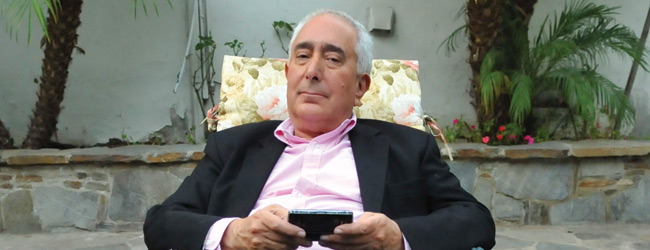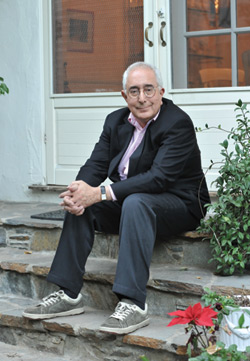
The following interview was conducted in January 2010 and focuses on current and future economic issues, specifically those pertaining to small- and medium-sized business owners.
I want to preface my first question, Ben, by explaining that GPS’ clients are small- to medium-sized businesses. The economy is affecting all the businesses we work with. Can you give us some of your predictions regarding 2010, such as how the economy is going to impact these business sectors? What impact on the business sector will changes in inflation, interest rates, marginal tax rates and gross domestic product potentially have?
I will, first of all, say that I’m not a fortune teller, I’m not a magician, I can’t tell the future. I can tell you, as of now, that we’re sitting here in my study in the middle of January 2010—it looks as if we’re in a recovery. The GDP numbers for the United States for the last quarter are quite strong. It has, so far, been a very painful recovery for the ordinary citizen because jobs are not coming back. In fact, the job rate is stagnant, and the number of people jobless is not improving at all. The number of people looking for jobs and not able to find them is cruelly large. Usually, this is true of a recovery, and recovery from a recession as severe as this will take a long time.
People always say to me, what would you do if you were Mr. Obama and you were asked to do whatever you could as fast as you could to bring about a recovery? I think what I would do is go on vacation for a year and take Nancy Pelosi and Harry Reid with me because they have injected so much uncertainty into the business process in this country that it is very difficult for people to hire. Even if you think there is going to be a recovery in your business, do you want to hire someone knowing that there may be a substantial liability for that person’s health care costs? Do you want to hire somebody knowing that there may be a substantial liability for environmental costs, cap and trade costs, carbon tax costs, any kind of emissions cost? Do you want to hire that person knowing that President Obama has already said that he’s in favor of higher taxes on well-to-do people so your taxes may go up? There is too much darned uncertainty.
Usually, to get a recovery, what you need is the Federal Reserve churning out money—that they’re doing very, very well. But, you also need some predictability and stability. We are not getting that from President Obama. We are getting a tremendous flow of uncertainty, and that is very bad for hiring and for the recovery.
Are you concerned about all the churning out of money—that it may have a negative impact on inflation?
Typically, economic theory would predict that this level of an infusion of money rising, at this rate of speed, would generate inflation. Inflation is generated by a combination of factors: money plus the velocity of money—the rate at which money turns over, so to speak. The latter has a lot to do with consumer confidence. We are in a situation of extremely poor consumer confidence. There is extremely poor lender and investor confidence, so that is hobbling the velocity of money. The volume is growing very fast; however, the velocity is static because it is neither growing nor shrinking.
I will give you, if I may, a personal example. A few months ago, I bought a condominium located in the very beautiful area of north Idaho’s Lake Pend Oreille. It is an astoundingly beautiful place. The people who made that loan to me came back a few days later and said they had cut their interest rate and could make a loan at a lower interest rate. Of course, I said go ahead and do it. I would rather have a lower interest rate. They called me back and said their lender is only lending 50 percent on the value of condominiums in this part of Idaho; keep in mind, we are talking about a beautiful location. This is a perfect example of what has gone wrong in this country. Real estate volume is just dying out there and that has lowered interest rates. The willingness to lend is very, very poor and in a situation in which the lender will only lend 50 percent of a property’s value, this is extreme. That is an example of the difficult lending circle that we are in.
Do you have any fears of raising interest rates to try to counter potential inflation? Might that have a negative impact on a recovery or worse?
I hope Mr. Bernanke is savvy enough to know not to do that. Mr. Bernanke’s great skill, supposedly, is his understanding of the causes of the Great Depression. A large mistake made was tightening money, way too fast, in the early stages of that depression’s recovery. When it looked like they were in the beginning of a recovery, they started turning screws too fast. The cause and effect was a terribly sharp downturn from 1930 to 1931. In 1937, when it looked like we were having a recovery, we were actually having inflation. They again reacted by turning on the monetary brakes; they stepped on the monetary brakes very hard, and that caused a really, really bad recession within a depression. I believe—I hope and pray—that Mr. Bernanke will not repeat the mistakes of the Great Depression. There are plenty of voices telling Mr. Bernanke to do that, but those voices have not read the history. The voices belong to the brains that have not read the history of the Great Depression. I think it would be folly for Mr. Bernanke to start raising interest rates at this stage of economic uncertainty.
 What do you think are the positives business owners can look forward to in 2010?
What do you think are the positives business owners can look forward to in 2010?
Well, I hope the recovery will get moving. It looks like it is already starting to get moving in the automobile industry, which is a very, very important part of the total American industry. The real question is, will the recovery get moving in the shelter area—residential shelter—for sale or for rent. That’s where there’s just been a terrible drag on the economy. I don’t see any sign of recovery there yet. I had dinner last month with Warren Buffett and he has very large interests in homebuilding, carpet making, brick making, furniture and jewelry. Warren said he’s not seeing recovery in those areas. He doesn’t see it, I don’t see it and I don’t think anyone else sees a lot of recovery in the shelter sector. I know eventually that it will happen. Geoff, there is no such thing as a housing bust from which there’s not a recovery, but it can take years. We hit our peak, roughly, in the spring of 2005. From that point, the market stayed on a plateau for awhile and then it started to crash down in 2007. Will we see prices again as they were in 2005? It could easily take until 2015. That would not be even a little bit surprising.
Do you see any changes for 2011 from 2010?
There will be continued recovery unless something unexpected comes along to stop it. Once the recovery starts, it usually doesn’t stop. There could be serious monetary policy and mistakes that would stop it, but absent monetary policy and mistakes, the economy should continue to improve for years to come. I do not think there is likely to be a double-dip recession. We have already had the longest recession of the post-war period. We have had a very severe recession; although, not as severe as the one at the beginning of the 80s. It would take serious monetary policy mistakes, serious fiscal policy mistakes, to put us back into a downward movement. This could happen, though, and I’m very worried about this administration’s fiscal policy. I’m very worried about Mr. Obama trying to raise taxes too much. I am especially concerned that he will raise taxes on business owners. Small business owners are EXTREMELY susceptible to the level of taxation.
What do you think the greatest economic hazards are out there for the next five years?
The greatest risks would come from the flawed monetary policy of tightening too fast or not fast enough. We could go from a state of a sort of sluggish recovery, to a very rapid recovery, to a very fast rise in inflation. I do not see that happening. It has not happened anywhere else in the Western world and I do not see it happening here.
At some point, if the Feds keep printing money, there has to be inflation, at least, so we think. I don’t see it coming yet. I do not see it coming any time soon. I certainly could be totally wrong. I believe all people should hedge against inflation. I recommend Treasury Inflation Protected Securities (TIPS) from the U.S. Treasury with a mix of some commodities and smart real estate. There has already been commodities inflation. I do not recommend gold. Gold is way too risky and fluctuates way too much and pays no interest or dividends. The watchword is “prudence.” I’m afraid all this uncertainty keeps people from getting hired.
Japan has proved a challenge to economic theory. Economic theory would say if you are running large deficits, creating huge amounts of total national debt, if you are generating huge increases in the money supply, you will get inflation. Japan has done all three of those things and they have no inflation at all. Just exactly why that is, we don’t know. How and why we would differ from that, I don’t know. There is a huge amount of money surging into Western Europe, China and in Japan and there’s, so far, not much inflation. There is some commodity inflation, but, in terms of finished goods, prices and finished services prices, there is not much inflation. I think there is too much slackness in consumer demand for there to be inflation any time soon.





Interesting interview. I would have also liked to heard what Bens thoughts were on the economic stimulus and weather or not it was really working. Like this guy did http://blog.heritage.org/2010/02/24/cbo-report-was-pre-ordained-to-show-the-stimulus-succeeded/